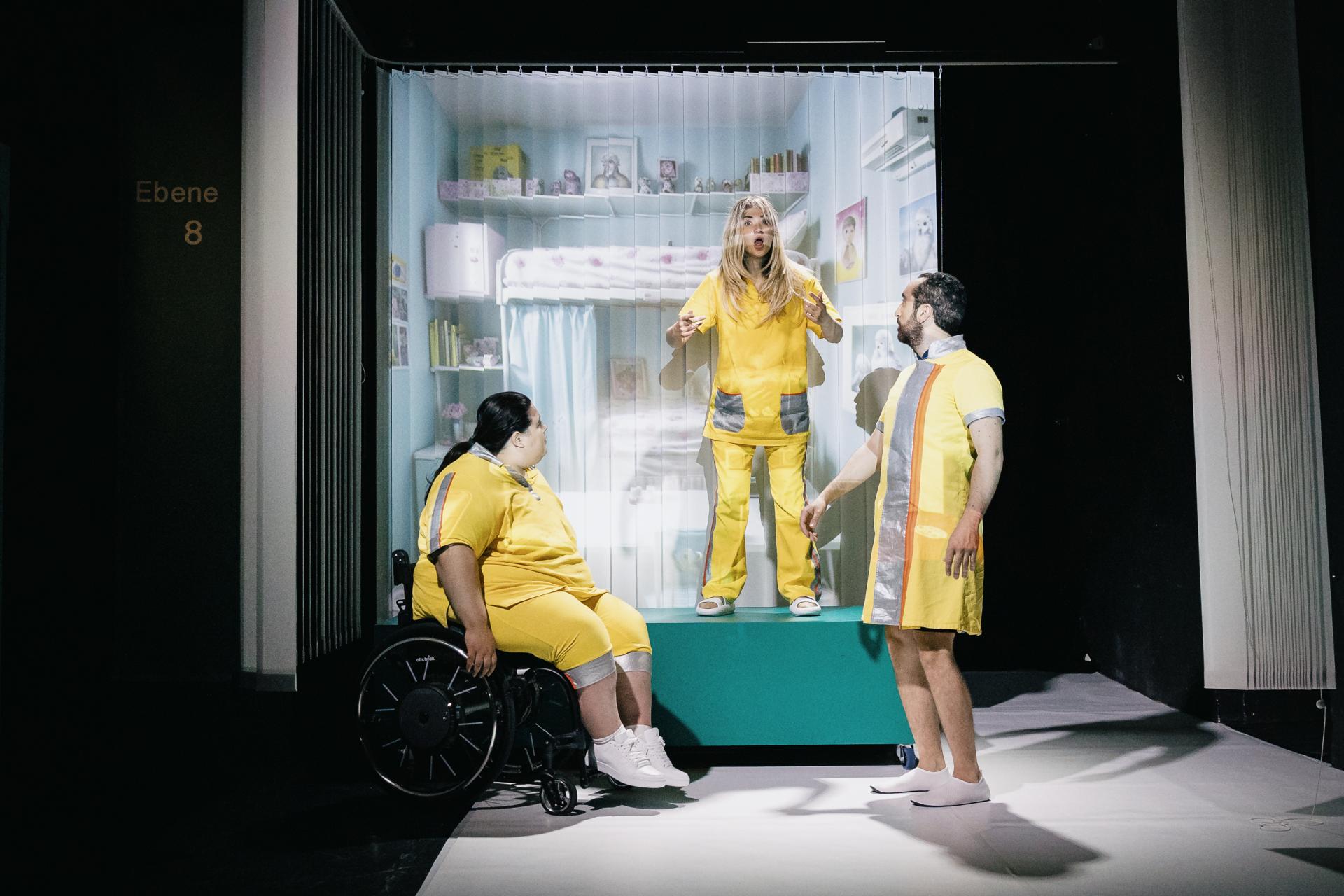


A premiere that was never completed. Das Kitzelmonster (The Tickle Monster) was supposed to be performed, but the audience was simply too weak. And today? Today, the author stands before us, talking about her greatest defeat and a curse that hovers over that evening. It is the curse of the past; of childhood; of missed opportunities that haunt her. The audience is haunted as well, for tonight we delve into the horror of the everyday, which will envelop everyone, with the threat of dragging them into the depths.



There, where it is least expected, that's where it lurks: the Tickle Monster, a sinister figure in spooky attire and with an empty face. It appears wherever people are in distress—not to help, but to tickle the suffering. *gulp* It shows up where all the night pharmacies are closed, when you urgently need a fever reducer, or when you wake up at night with such severe stomach pains that only a trip to the emergency room is left. A small matter really, and *snap*, just like that, you spend a night in the hospital's dying room.
Abendzettel: Das Kitzelmonster
The Tickle Monster deals with the everyday fears—the moment when the certainties of our daily life lose their validity, even if only in our imaginations and dreams. In this moment, a chasm to hell opens in civilization, and demons and ghosts from a long-past age come to haunt us.
Do we change for the better through the confrontation with death and grow beyond ourselves, or are we left merely confused? The Tickle Monster leaves behind a feeling of confusion and fear, far removed from any positive transformation or catharsis.
The Tickle Monster is a stage play by author Barbi Marković, commissioned by Peira and directed by Alexander Bauer. It is a premiere of the play, taking the audience into the deepest corners of the human psyche, making us laugh in the process.
Salzburger Nachrichten, 19.04.24, Sonja Harter: Theater am Werk Petersplatz widmet sich dem "Kitzelmonster"
Kurier, 19.04.24, Susanne Zobl: "Jubel für die Autorin: „Das Kitzelmonster“ im Theater am Werk"
Der Standard, 21.04.24, Margarete Affenzeller: "Das Kitzelmonster" von Barbi Marković quält die Schwächsten


Block parties are our safe space for all girls, trans*, inter*, non-binary, agender people, and women who love hip hop. Look forward to rap acts, dance battles, DJs, Q&As, and hip hop culture! We will also introduce you to the SISTER*QUEENS project and everything you can expect over the next two years. Delicious food will be provided. And everything is free!
This is the party where you support, celebrate, and inspire each other. A place full of inspiration, sisterhood, and strong artists from the Berlin hip hop scene.
Thursday, November 27, 2025
4:30 p.m. – 8:00 p.m.
SNIPES Studio44, Karl-Marx-Str. 97-99, 12043 Berlin

Do you have an idea for an art education project and would like to learn how to develop a concept and apply for funding? We offer a two-day training course at the Brücke-Museum on how to apply for funding, financial planning and legal forms. Participants have time to develop an educational concept. A selected concept will later be realized in the Brücke-Museum.
The workshop is primarily aimed at artists or artists with a history of migration. If there is still capacity, freelancers without a history of migration can also take part.
Date: September 15 and 29, 12am–5pm (two-day training course)
More information on the Brücke-Museum website.




peira.space uses cookies. If you click on 'OK' or continue to use the site, you agree to the use of cookies.